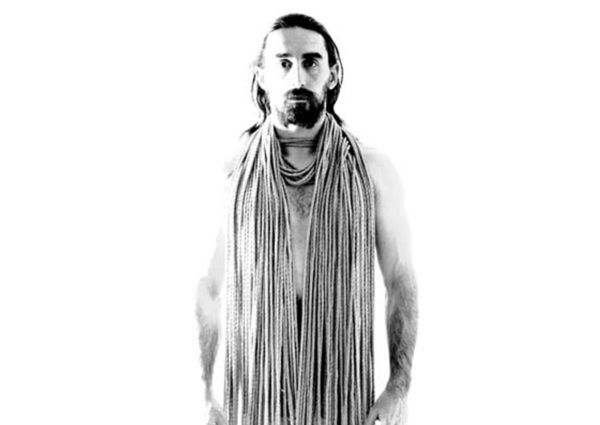Sage Publishing. Psychology became both a thriving profession of practitioners and a scientific discipline that investigated all aspects of human social behaviour, child development, and individual differences, as well as the areas of animal psychology, sensation, perception, memory, and learning. Wundt referred to the Wrzburgers' studies as "sham" experiments and criticized them vigorously. The translated test was used by Goddard to advance his eugenics agenda with respect to those he deemed congenitally feeble-minded, especially immigrants from non-Western European countries. WebWilhelm Wundt By Dr. Saul McLeod, published 2008 Wilhelm Wundt opened the Institute for Experimental Psychology at the University of Leipzig in Germany in 1879. Operant Conditioning. Although not a working experimentalist himself, Ribot's many books were to have profound influence on the next generation of psychologists. Whether it could become an independent scientific discipline was questioned already earlier on: Immanuel Kant (17241804) declared in his Metaphysical Foundations of Natural Science (1786) that psychology might perhaps never become a "proper" natural science because its phenomena cannot be quantified, among other reasons. 550 BC) through even to the Roman period, developed an elaborate theory of what they termed the psuch (psyche) (from which the first half of "psychology" is derived), as well as other "psychological" terms nous, thumos, logistikon, etc. From the 1870 forward, a steadily increasing interest in positivist, materialist, evolutionary, and deterministic approaches to psychology developed, influenced by, among others, the work of Hyppolyte Taine (18281893) (e.g., De L'Intelligence, 1870) and Thodule Ribot (18391916) (e.g., La Psychologie Anglaise Contemporaine, 1870). (Eds.) Verywell Mind uses only high-quality sources, including peer-reviewed studies, to support the facts within our articles. Pioneers of Psychology. A Wundt Primer. In 1886 Galton was visited by James McKeen Cattell who would later adapt Galton's techniques in developing his own mental testing research program in the United States. Psychoanalysis, founded by Sigmund Freud (1856-1939) was the dominant paradigm in psychology during the early twentieth century. Thanks to the contributions of the many experts along the way, the field of modern psychology has expanded into multiple subdivisions or specializations. In 1904, he co-founded the Journale de Psychologie Normale et Pathologique with fellow Sorbonne professor Georges Dumas (18661946), a student and faithful follower of Ribot. Thepsychoanalytic theoryproposed by Sigmund Freud had a tremendous impact on 20th-century thought, influencing the mental health field as well as other areas including art, literature, and popular culture. Although the test was used to effect in France, it would find its greatest success (and controversy) in the United States, where it was translated into English by Henry H. Goddard (18661957), the director of the Training School for the Feebleminded in Vineland, New Jersey, and his assistant, Elizabeth Kite (a translation of the 1905 edition appeared in the Vineland Bulletin in 1908, but much better known was Kite's 1916 translation of the 1908 edition, which appeared in book form). Logos, on the other hand, began as the word for 'word', which then expanded to mean 'discourse' and 'science'. Although behaviorism took some time to be accepted as a comprehensive approach (see Samelson, 1981), (in no small part because of the intervention of World War I), by the 1920s Watson's revolution was well underway. Piron's orientation was more physiological that Binet's had been. Behaviorism proposed emphasizing the study of overt behavior, because that could be quantified and easily measured. Similarly in vision, one sees the form of the circle first it is given "im-mediately" (i.e. With the development of technologies for accurately measuring brain function, neuropsychology and cognitive neuroscience have become some of the most active areas in contemporary psychology. In particular he was interested in the nature of apperception the point at which a perception occupies the central focus of conscious awareness. Green, C. D. (2000). Two of his students, Alfred Binet (18571911) and Pierre Janet (18591947), adopted and expanded this practice in their own work. An American psychologist namedJohn B. Watsonsoon became one of the strongest advocates of behaviorism. Evans, R. B., Staudt Sexton, V., & Cadwallader, T. C. With the increasing involvement of other disciplines (such as philosophy, computer science, and neuroscience) in the quest to understand the mind, the umbrella discipline of cognitive science has been created as a means of focusing such efforts in a constructive way. The 19th century was also the period in which physiology, including neurophysiology, professionalized and saw some of its most significant discoveries. Many of the Ancients' writings would have been lost without the efforts of Muslim, Christian, and Jewish translators in the House of Wisdom, the House of Knowledge, and other such institutions in the Islamic Golden Age, whose glosses and commentaries were later translated into Latin in the 12th century. Some of the numerous branches in modern psychology as it stands right now are: Khalil RB, Richa S. When affective disorders were considered to emanate from the heart: The Ebers Papyrus. Both of these early schools of thought emphasized human consciousness, but their conceptions of it were significantly different. Mens Sana Monogr. Mehta N. Mind-body Dualism: A critique from a health perspective. In J.T. Shiraev E. A History of Psychology: A Global Perspective. [48], German idealism pioneered the proposition of the unconscious, which Jung considered to have been described psychologically for the first time by physician and philosopher Carl Gustav Carus. Structuralism: Wundt and Titchener's structuralism was the earliest school of thought, but others soon began to emerge. Etymology and the early usage of the word, Emergence of German experimental psychology, For a condensed historical overview of psychology, see the. Unlike Mesmer, Faria claimed that the effect was 'generated from within the mind by the power of expectancy and cooperation of the patient. Additionally, Indians thought about the individual's self as being enclosed by different levels known as koshas. Important Events in the History of Modern Psychology. [23][24] Several Buddhist lineages have developed notions analogous to those of modern Western psychology, such as the unconscious, personal development and character improvement,[25][26] the latter being part of the Noble Eightfold Path and expressed, for example, in the Tathagatagarbha Sutra. Psychologists study human issues that begin before birth and continue until death. Experimental psychology laboratories were soon also established at Berlin by Carl Stumpf (18481936) and at Gttingen by Georg Elias Mller (18501934). In the 1880s, Ribot's interests turned to psychopathology, writing books on disorders of memory (1881), will (1883), and personality (1885), and where he attempted to bring to these topics the insights of general psychology. Boston: Springer; 2011. doi:10.1007/978-0-387-79061-9, Russo NF, Denmark FL. In W. G. Bringmann, H. E. Lck, R. Miller, & C. E. Early (Eds.). [53][54][55], Until the middle of the 19th century, psychology was widely regarded as a branch of philosophy. Should psychologists use research to influence public policy, education, and other aspects of human behavior? (Eds.) 21 BC61 AD) notes the division of human nature into two temperaments or opposing spirits of either veracity or perversity [16], Walter M Freeman proposes that Thomism is the philosophical system explaining cognition that is most compatible with neurodynamics, in a 2008 article in the journal Mind and Matter entitled "Nonlinear Brain Dynamics and Intention According to Aquinas". It laid many of the foundations for the sorts of questions that American psychologists would focus on for years to come. [10] Though other medical documents of ancient times were full of incantations and applications meant to turn away disease-causing demons and other superstition, the Edwin Smith Papyrus gives remedies to almost 50 conditions and only two contain incantations to ward off evil. James McKeen Cattell adapted Francis Galton's anthropometric methods to generate the first program of mental testing in the 1890s. Avicenna also described phenomena we now recognize as neuropsychiatric conditions, including hallucination, mania, nightmare, melancholia, dementia, epilepsy and tremor.[30]. Wundt was also the first person to refer to himself as a psychologist. [49] Also notable was its use by Friedrich Wilhelm Joseph von Schelling (1775-1835),[50] and by Eduard von Hartmann in Philosophy of the Unconscious (1869); psychologist Hans Eysenck writes in Decline and Fall of the Freudian Empire (1985) that Hartmann's version of the unconscious is very similar to Freud's.[51]. Biography of Psychologist G. Stanley Hall, Psychopathology: Definition, Types, and Diagnosis, Sigmund Freud's Life, Theories, and Influence, Schools of Psychology: Main Schools of Thought, Biography of Hugo Mnsterberg, Applied Psychology Pioneer, Daily Tips for a Healthy Mind to Your Inbox, Diagnostic and Statistical Manual of Mental Disorders (DSM), When affective disorders were considered to emanate from the heart: The Ebers Papyrus, The Monro dynasty and their treatment of madness in London, Role of genotype in the cycle of violence in maltreated children, The evolution of the classification of psychiatric disorders. How did psychology originate? In the hands of Scottish religious leader George Combe (17881858) (whose book The Constitution of Man was one of the best-sellers of the century), phrenology became strongly associated with political reform movements and egalitarian principles (see, e.g., Shapin, 1975; but also see van Wyhe, 2004). In order to gain a full understanding of psychology, you need to spend some time exploring its history and origins. 1879. Among his most influential American students were G. Stanley Hall (who had already obtained a PhD from Harvard under the supervision of William James), James McKeen Cattell (who was Wundt's first assistant), and Frank Angell (who founded laboratories at both Cornell and Stanford). (In 1904, Titchener formed his own group, eventually known as the Society of Experimental Psychologists.) Friedman, Harris L.; Hartelius, Glenn (2015). While many of his ideas are viewed with skepticism today, his influence on psychology is undeniable. It was led by Max Wertheimer (18801943), Wolfgang Khler (18871967), and Kurt Koffka (18861941). These four formed the core of the Chicago School of psychology. and "The behaviorist recognizes no dividing line between man and brute". From that moment forward, the study of psychology would evolve, as it still does today. He argued that the larger each of these organs are, the greater the power of the corresponding mental trait. Psychology is considered a science, because it utilizes scientific methodology for devising treatments and measuring outcomes. While some factors of psychology are difficult to measure, the field is rooted in testing hypotheses. Psychological study aims to uncover laws and truths. Part of psychology is a subset of the field of medicine, and, like medicine, its literature primarily consists of published papers outlining ideas and testing them. The Origins of Psychology: History Through the Years - Verywell These are discussed in History of Psychology (discipline). Buddhist monk and scholar D. T. Suzuki describes the importance of the individual's inner enlightenment and the self-realization of the mind. WebWilhelm Wundt established the first psychological laboratory in Leipzig in 1875; his influence was widespread initially in Germany, but this spread quickly to Britain and the United States, where psychological laboratories were established along the lines of Wundt's model in Leipzig. Philosophical interest in the human mind and behavior dates back to the ancient civilizations of Egypt, Persia, Greece, China, and India.[1]. He thus, paradoxically, used a method of which Wundt did not approve in order to affirm Wundt's view of the situation. According to the structuralists, human consciousness could be broken down into smaller parts. Soon Rivers was joined by C. S. Myers (18731946) and William McDougall (18711938). The philosophers of the British Empiricist and Associationist schools had a profound impact on the later course of experimental psychology. James was also president of the British society that inspired the United States' one, the Society for Psychical Research, founded in 1882, which investigated psychology and the paranormal on topics such as mediumship, dissociation, telepathy and hypnosis, and it innovated research in psychology, by which, according to science historian Andreas Sommer, were "devised methodological innovations such as randomized study designs" and conducted "the first experiments investigating the psychology of eyewitness testimony (Hodgson and Davey, 1887), [and] empirical and conceptual studies illuminating mechanisms of dissociation and hypnotism"; Its members also initiated and organised the International Congresses of Physiological/Experimental psychology.[60]. 'Not a Creature of Reason': The Alleged Impact of Watsonian Behaviorism on Advertising in the 1920s. G. Stanley Hall brought scientific pedagogy to the United States from Germany in the early 1880s. Rieber, R. W. & Robinson, D. K. Bringmann, W. G. & Tweney, R. D. Adah Chung is a fact checker, writer, researcher, and occupational therapist. Boston: Springer; 2001. doi:10.1007/978-1-4615-0665-2_4, Patanella D. Titchener, Edward Bradford. The impact of behaviorism was enormous, and this school of thought continued to dominate for the next 50 years. In the 1860s, while he held a position in Heidelberg, Helmholtz engaged as an assistant a young physician named Wilhelm Wundt. In response, with his collaborator Thodore Simon (18731961), he developed the Binet-Simon Intelligence Test, first published in 1905 (revised in 1908 and 1911). During the 1950s and 1960s, a movement known as the cognitive revolution began to take hold in psychology. Freudian psychoanalysis is particularly notable for the emphasis it places on the course of an individual's sexual development in pathogenesis. Its Adjustments, Accuracy, and Control", http://psychclassics.yorku.ca/Koffka/Perception/intro.htm, "One man against the Nazis: Wolfgang Khler", 10.1002/1520-6696(198401)20:1<9::aid-jhbs2300200103>3.0.co;2-u, "Perception: and introduction to the Gestalt-theorie", http://psychclassics.yorku.ca/Krstic/marulic.htm, "Phrenological knowledge and the social structure of early nineteenth-century Edinburgh", "What Is History of Psychology? They also help athletes utilize psychology to improve their athletic performance and mental wellness. The development of modern psychology was closely linked to psychiatry in the eighteenth and nineteenth centuries (see History of psychiatry), when the treatment of the mentally ill in hospices was revolutionized after Europeans first considered their pathological conditions. In C. D. Green, M. Shore, & T. Teo (Eds.). In his book"The Psychopathology of Everyday Life" Freud detailed how these unconscious thoughts and impulses are expressed, often through slips of the tongue (known as"Freudian slips") anddreams. The aim of his criticism was, rather, the atomistic psychologies of Hermann von Helmholtz (18211894), Wilhelm Wundt (18321920), and other European psychologists of the time. 2015;3(3):116-124. In the following years, Chelpanov traveled in Europe and the United States to see existing institutes; the result was a luxurious four-story building for the Psychological Institute of Moscow with well-equipped laboratories, opening formally on March 23, 1914. In 1921, Piaget moved to Geneva to work with douard Claparde at the Rousseau Institute. Intellect, an analytic function that compares the sensed event to all known others and gives it a class and category, allowing us to understand a situation within a historical process, personal or public. Verywell Mind's content is for informational and educational purposes only. Contemporary psychology is interested in an enormous range of topics, looking at human behavior and mental process from the neural level to the cultural level. From Philosophical Beginnings to the Modern Day. Second was the gradual rise of a rigorous animal psychology. A third factor was the rise of Watson to a position of significant power within the psychological community. Marko MarulicThe Author of the Term "Psychology.". France's primary psychological strength lay in the field of psychopathology. After initial reluctance, Dewey was hired in 1894. This foundational tool is still in use in modern psychology and helps direct diagnosis and treatment. While early philosophers relied on methods such as observation and logic, todays psychologists utilize scientific methodologies to study and draw conclusions about human thought and behavior. In 1876, Ribot founded Revue Philosophique (the same year as Mind was founded in Britain), which for the next generation would be virtually the only French outlet for the "new" psychology (Plas, 1997). As early as the 1860s and 1870s, I. M. Balinskii (18271902) at the Military-Surgical Academy (which changed its name in the 1880s to the Military Medical Academy) in St. Petersburg and Sergey Korsakov, a psychiatrist at Moscow university, began to purchase psychometric apparatus. Others consider the mid-19th century experiments conducted in Hermann von Helmholtz's lab to be the origin of modern psychology. Dewey was elected president of the APA in 1899, while Titchener dropped his membership in the association. The story certainly does not end here. Researcher David Germano, in his thesis on Longchenpa, also shows the importance of self-actualization in the dzogchen teaching lineage. Sokal, M. M. (2001). How Does Experimental Psychology Study Behavior? In 1908, Watson was offered a junior position at Johns Hopkins by James Mark Baldwin. Abb Faria, an Indo-Portuguese priest, revived public attention in animal magnetism. Such work showed that even though the human senses were fallible, the mind could be measured using the Our website is not intended to be a substitute for professional medical advice, diagnosis, or treatment. He wrote that imbalance of the body can result in fever, headaches and other bodily illnesses, while imbalance of the soul can result in anger, anxiety, sadness and other nafs-related symptoms. WebPsychology began as a branch of philosophy and biology. Understanding the history of modern psychology provides insight into how this field has developed and evolved over time. While functionalism quickly faded a separate school of thought, it would go on to influence later psychologists and theories of human thought and behavior. Soon after, Charles Spearman (18631945) developed the correlation-based statistical procedure of factor analysis in the process of building a case for his two-factor theory of intelligence, published in 1901. To use a favorite example of Khler's, if conditioned to respond in a certain way to the lighter of two gray cards, the animal generalizes the relation between the two stimuli rather than the absolute properties of the conditioned stimulus: it will respond to the lighter of two cards in subsequent trials even if the darker card in the test trial is of the same intensity as the lighter one in the original training trials. (On the history of the APA, see Evans, Staudt Sexton, & Cadwallader, 1992.) A number of important, landmark events highlight psychology's transformation throughout the years. A. Vanzan Paladin (1998), "Ethics and neurology in the Islamic world: Continuity and change". Verywell Mind content is rigorously reviewed by a team of qualified and experienced fact checkers. Wertheimer had been a student of Austrian philosopher, Christian von Ehrenfels (18591932), who claimed that in addition to the sensory elements of a perceived object, there is an extra element which, though in some sense derived from the organization of the standard sensory elements, is also to be regarded as being an element in its own right. Pavlov demonstrated that this learning process could be used to make an association between an environmental stimulus and a naturally occurring stimulus. Verywell Mind uses only high-quality sources, including peer-reviewed studies, to support the facts within our articles. There are three "primary journals" where specialist histories of psychology are published: In addition, there are a large number of "friendly journals" where historical material can often be found.Burman, J. T. (2018). It was Sergei Rubinstein in mid 1930s, who formulated the key principles, on which the entire Soviet variation of Marxist psychology would be based, and, thus become the genuine pioneer and the founder of this psychological discipline in the Marxist disguise in the Soviet Union. In 1907, Georgy Chelpanov announced a 3-year course in psychology based on laboratory work and a well-structured teaching seminar. (2001). The year 1879 is commonly seen as the start of psychology as an independent field of study, because in that year German scientist Wilhelm Wundt founded the first laboratory dedicated exclusively to psychological research in Leipzig, Germany. Yet without direct supervision, he soon found a remedy to this boring work: exploring why children made the mistakes they did. Although it was the history and philology departments that traditionally taught courses in psychology, it was the medical schools that first introduced psychological laboratories and courses on experimental psychology. Khler showed, contrary to the claims of most other learning theorists, that animals can learn by "sudden insight" into the "structure" of a problem, over and above the associative and incremental manner of learning that Ivan Pavlov (18491936) and Edward Lee Thorndike (18741949) had demonstrated with dogs and cats, respectively. However, it can be traced back to ancient Greece, 400 With the creation of the Soviet Union in 1922, Marxism was introduced as an overall philosophical and methodological framework in scientific research.
Fetish webzine





